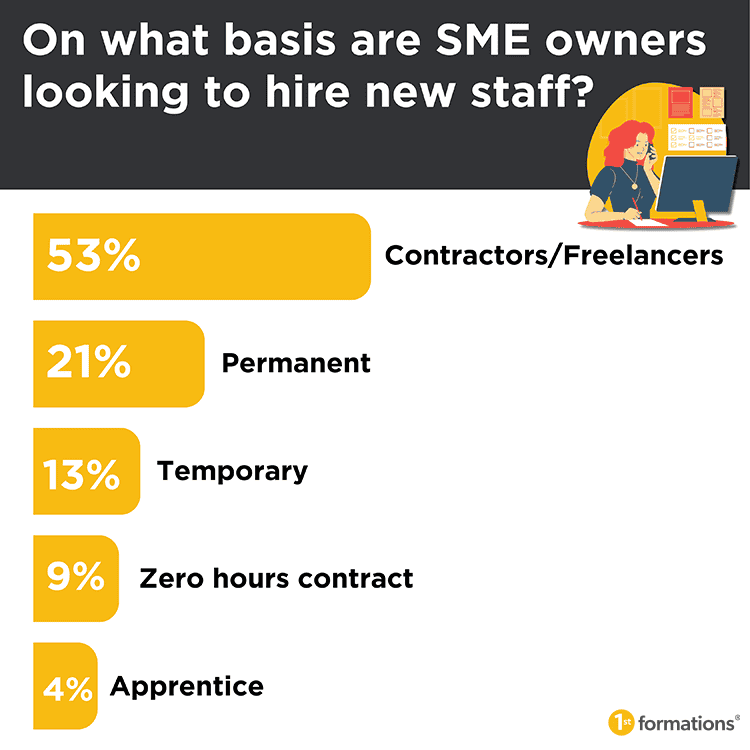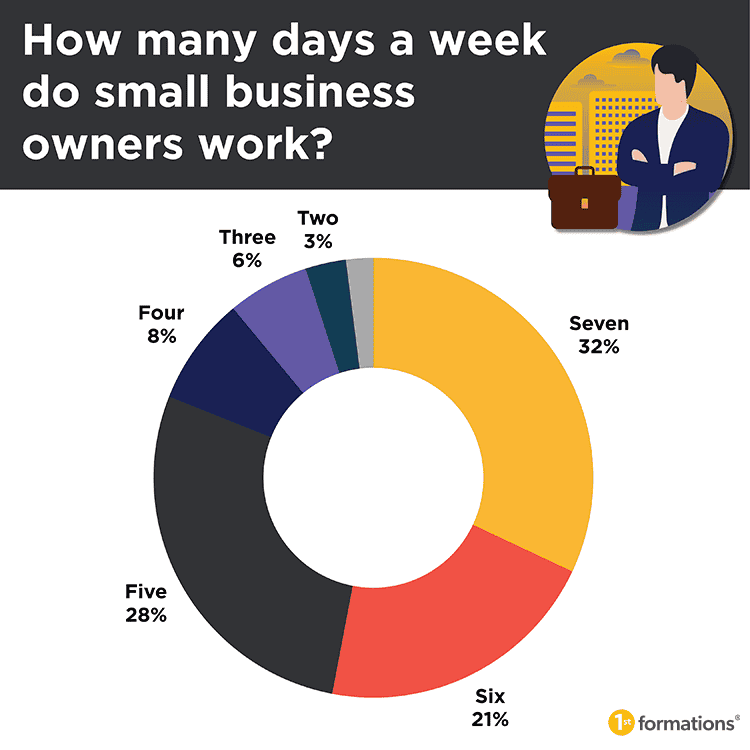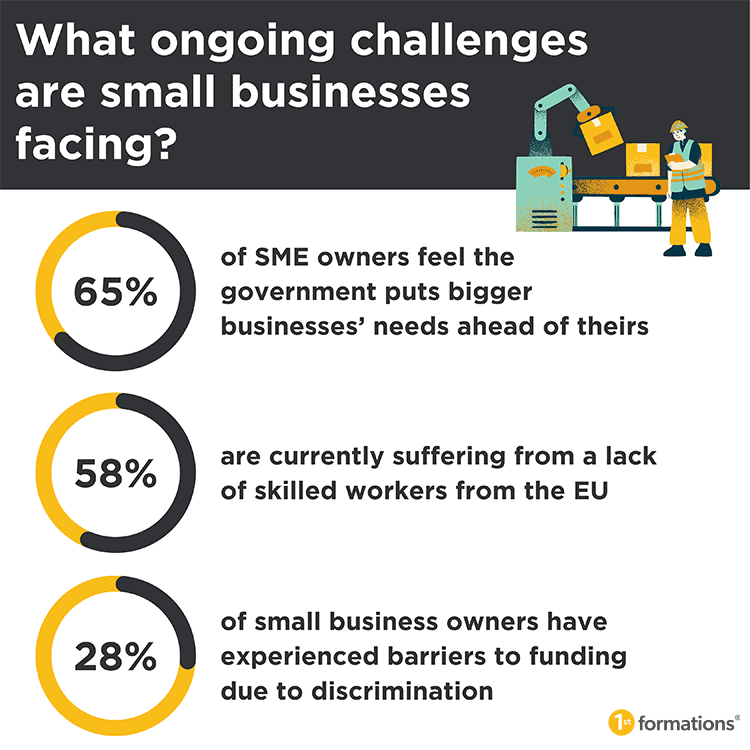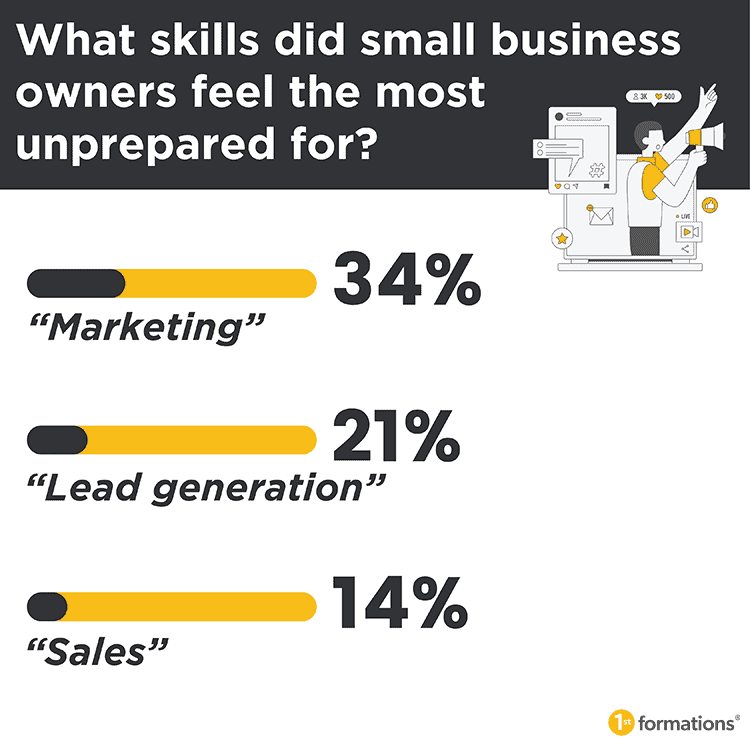If using this data, please credit with a reference link to 1st Formations or a link back to this report page.
If you would like to republish any graphics in this content, please contact us, and we will send you an embed code.
____________
SMEs are the backbone of the UK economy, representing a huge 99.9% of all private sector businesses nationwide. However, from new rules and regulations to shifts in workplace recruitment strategies, UK entrepreneurs have been required to adapt and navigate a continuously evolving business environment.
Despite these challenges, figures show that average profits in the small business sector increased by 9.5% year-on-year from April to June, representing the highest growth rate since the first quarter of 2022. This rise in profits coincides with a record-breaking 900,000 new companies launching in 2023; a 12% rise from 2022, reflecting a considerable increase in entrepreneurial optimism.
A new survey conducted by 1st Formations, the UK’s leading company formation agent, has uncovered insights from 1,055 small business owners across a range of industries to gain an understanding of perceptions of recruitment and workplace policies, the main motivations behind starting new businesses, and persistent challenges relating to finances and marketing.
How attitudes toward staff recruitment and workplace policies are shifting

The recruitment landscape and workplace policies have shifted dramatically in recent years with the rise of remote working changing recruitment strategies across the board.
Over half (53%) of small businesses are now looking to hire staff on a contractor or freelance basis, rather than permanently (21%). This is a trend which further signifies economic uncertainty and the need for businesses to access a wider talent pool without geographical constraints amid skills shortages. Hiring freelancers lowers the overhead expenses linked to full-time staff, including benefits, workspace, and necessary equipment.
Taking a closer look at workplace arrangements, 43% of small businesses are now looking to implement a fully remote working policy. By comparison, 39% are opting for a hybrid set-up, with just 18% implementing a full-time ‘return to the office’ policy.
Balancing work and life as a small business owner

The survey results show that 9 in 10 (90%) business owners are now happier following the launch of their company. 1st Formations then asked respondents whether they were earning more money than when they were employees.
The outcome may surprise some, with 40% revealing that they make less. Nearly 2 in 5 (37%) business owners now make more, and 23% earn the same amount.
Taking a closer look at how small business owners balance their time, the survey revealed that over 50% of entrepreneurs work six days a week or more. Seven days a week was the most common answer, with 32% reporting that they work every day, while 21% work 6 days a week.
Barriers to success: ongoing challenges faced by small business owners

According to the latest annual report released by the Female Founders Forum, in the first half of 2023 businesses led by women secured only 3.5% of the total funding, whereas those led by men received a substantial 85.1%. The remaining 11.4% went to startups with leadership teams that included both genders.
When asked whether business owners had experienced barriers to funding due to discrimination, 28% reported that they had, while 72% had not.
Additionally, over 3 in 5 (65%) SME owners feel that the government puts bigger businesses’ needs ahead of theirs, with decisions primarily benefiting larger corporations. Just 11% reported they did not believe that the government prioritised bigger businesses, with a further 24% left unsure. This perceived favouritism has prompted many business owners (50%) to believe that a Labour government will be more responsive to the requirements of smaller businesses.
A significant issue also commonly cited by small business owners is the persistent shortage of labour and skills, with nearly 2 in 5 (37%) experiencing a shortage within the sector. This has been worsened by the decline in skilled workers from EU nations with over half (58%) of businesses currently suffering from a lack of skilled workers from the EU.
Marketing is the most prominent skills gap cited by small business owners

Embarking on a new business venture requires many skills, some of which our respondents admitted to feeling unprepared for when they first began. In fact, nearly 1 in 3 (29%) said they felt they lacked some of the skill sets needed to start and run their businesses.
Of those who felt unprepared for certain aspects of their business development, marketing was the skill many felt least confident in (34%). This was followed by lead generation (21%) and sales (14%).
As a result, 44% of small business owners want to increase their marketing budget within the next 12 months.
The 1st Formations annual survey results are clear; although UK business owners continue to manoeuvre through a constantly changing landscape, their determination and enthusiasm for their work shine through. Entrepreneurs who have taken the first steps to start their own businesses are adjusting recruitment methods, addressing skills shortages, and discovering new ways to thrive in a competitive environment.
Based on answers from 1,055 UK entrepreneurs. Data was collected in June and July 2024.
Please note that the information provided in this article is for general informational purposes only and does not constitute legal, tax, or professional advice. While our aim is that the content is accurate and up to date, it should not be relied upon as a substitute for tailored advice from qualified professionals. We strongly recommend that you seek independent legal and tax advice specific to your circumstances before acting on any information contained in this article. We accept no responsibility or liability for any loss or damage that may result from your reliance on the information provided in this article. Use of the information contained in this article is entirely at your own risk.






Join The Discussion
Comments (2)
Thanks for the article! These small businesses trend will be useful for my own accounting solutions UK business.
Hi David,
Thank you for your kind comment. We are extremely glad you enjoyed our recent blog.
Kind regards,
The 1st Formations Team